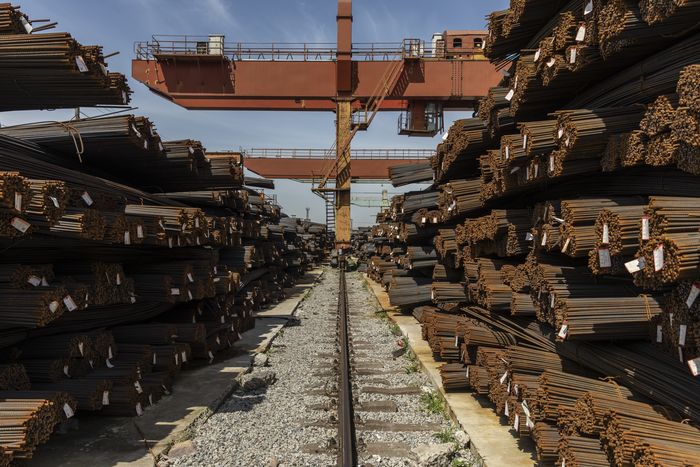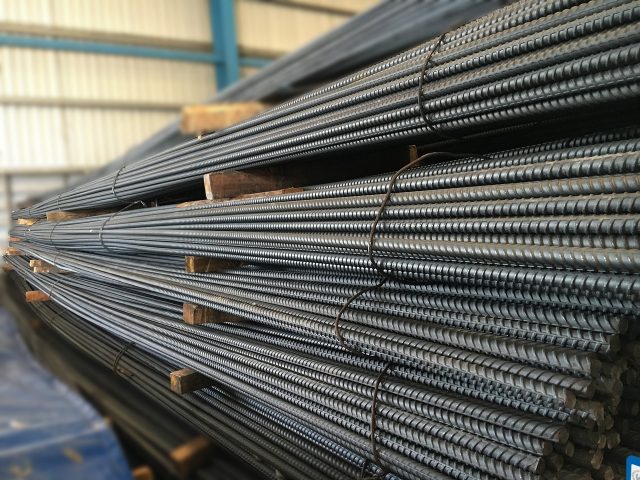
Many people expect the tax tool to reduce speculation and stop the rise in house prices. (Photo: Ngoc Anh).
At the beginning of March 2022, the Ministry of Finance consulted on real estate tax collection policies, including taxation of houses and properties, in order to develop an outline of a report, review, assessment and propose amendments according to the guidelines. direction of the Government.
In the Tax Reform Strategy to 2030 signed and approved by Deputy Prime Minister Le Minh Khai in April 2022, the Ministry of Finance was assigned to review and evaluate the overall implementation of the non-profit land use tax policy. agriculture.
On that basis, complete research in the direction of increasing the regulation level for land and supplementing tax collection for houses in order to encourage the effective use of houses and land, contributing to limiting speculation on houses and land, ensuring safety. mobilize a reasonable and stable source of revenue for the state budget, in line with Vietnam’s socio-economic conditions and international practices.
The proposed property tax is controversial in terms of feasibility and impact on buyers.
According to economist Huynh Phuoc Nghia, from a macro perspective to operations, taxation is very important. The proposal to tax real estate in Vietnam is only being discussed, discussed and commented on.
“Ultimately, the act of taxing a second home onward means that we are asking the question from the point of view that a person owns too much real estate compared to needs, but whether it is effectively exploited or not. no and how effective is this ownership? This question is completely related to the economic aspect and effective use of resources, including real estate products, “he said.
According to Mr. Nghia, this tax aims to reallocate demand in the context of limited land and housing resources. Because now there is a situation where people own a lot of real estate but do not use it or use it inefficiently, causing waste.
“Judging from scientific bases and international observations, Vietnam has absolutely a basis for taxing real estate for the second time onwards. However, this needs to be studied very carefully, evaluated in many aspects and must be implemented step by step because if approved, it will have a significant impact on the lives of many people,…”, Mr. Nghia emphasized. strong.
According to this expert, each country has a different regulation on real estate tax. Some countries also have taxes levied directly on the owner’s real estate.
For example, in the UK, the market has experienced more than 30 times of crisis in property prices, they have tax rates based on property value, each price level has different tax rates. Tax is also calculated based on the exploitation of that property. For example, the more real estate a person owns, the more progressive tax they will have on the second property onwards.
Or in France, if a person has a property that is taxable, the tax will apply to both the landlord and the tenant. And Korea will divide the types of real estate and the owner will be subject to different tax rates. Singapore also has a high tax on the 2nd property and gradually increases with the next property,…
“Currently, after the buyer owns a real estate, there is almost no other tax related to the exploitation and operation. This is a huge difference between Vietnam and the world. I think it’s time for Vietnam to adapt to the general trend of the world,” Nghia said.
Not sure to reduce house prices
Mr. Dinh Minh Tuan, Southern Regional Director of Batdongsan.com.vn, said that Vietnam currently does not have too many taxes specifically for real estate transactions. Besides VAT, in the purchase and sale of real estate, the transfer tax is 2%, the registration tax is 0.5% and the non-agricultural production and business land applies the tax rate of 0.03%. . In addition, in the process of buying and selling, there are a number of other taxes and fees incurred such as real estate appraisal tax.
If compared with other countries in the world, this person said, real estate buyers in Vietnam almost do not spend any extra money for the operation and exploitation of property value after the transfer.
Mr. Tuan said that the story of the increase in real estate prices was not because Vietnam did not tax. Therefore, this is not a prerequisite for solving this problem. Taxing real estate in the short term will reduce speculation. But in the long term, real estate prices will increase again and the supply-demand mismatch will get bigger and bigger. The bigger consequence that could happen is the freezing of the market.
“The real estate tax cannot be applied immediately because it may cause instability in the market. And the tax plan also needs to be carefully studied. It is possible not to evaluate the 2nd, 3rd house but based on the property value like some countries in the world.
In addition, there are many people who are concerned about tax overlap. Therefore, when applying tax on second home or tax on property, the State must consider it very carefully. At the same time, should the land use tax be reduced first, or other taxes should be reduced to balance it, and in which segment should the tax be levied, etc.?”, said Mr. Tuan.
Sharing the same view, Mr. Nghia said that blocking the rise in house prices must not only be solved by taxation, but must originate from the regulation of supply and demand in the real estate market. The most fundamental is still the problem of supply and solving policies related to supply. And if this problem is not solved, financial measures will only affect certain groups in the process of operation.
“Need to review the transparency, the role of assessment or the third-party control mechanism related to the valuation of assets…, it is difficult for Vietnam to implement tax immediately. But if I just look at the information that the Government has introduced taxes and think that it has an immediate impact on the market, I think this statement is not thorough. If the expectation that the tax can solve the problem of high real estate prices or eliminate the defects of the real estate market, I think it is not exhaustive,” the expert emphasized.
T&G Import-Export Joint Stock Company
Address: 352 Hue Street, Le Dai Hanh Ward, Hai Ba Trung District, Hanoi
Hotline: 02473010868
Email: hrm@tginterjsc.com
Website: http://tgimportexport.com




















